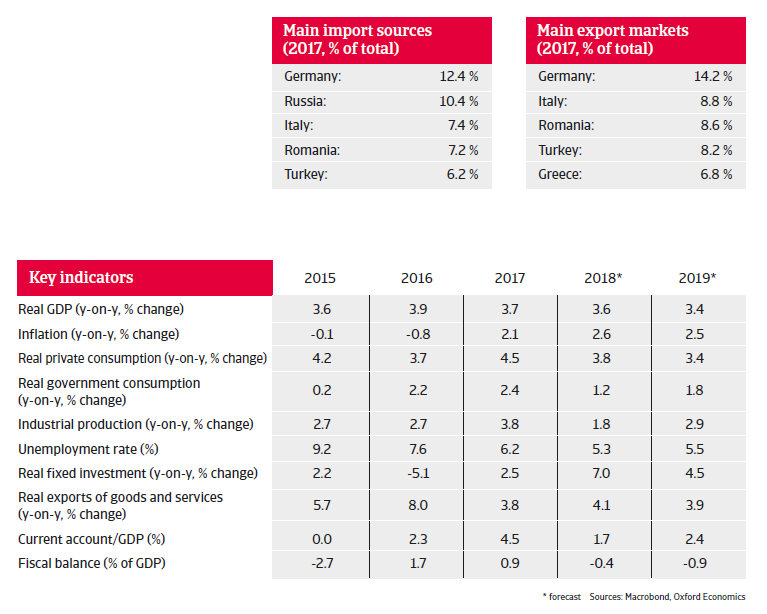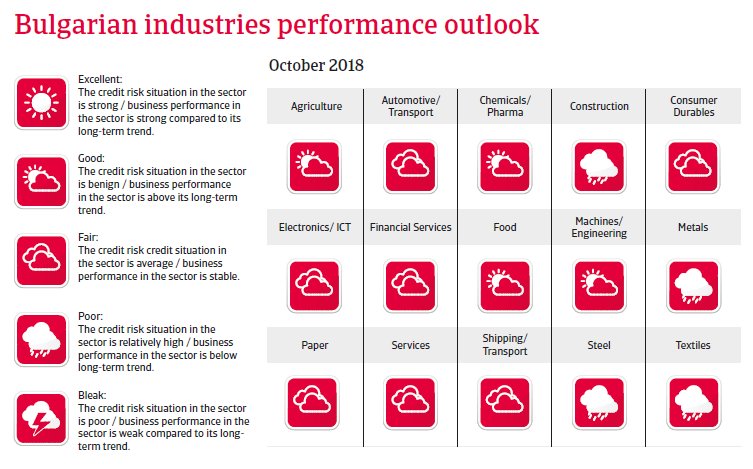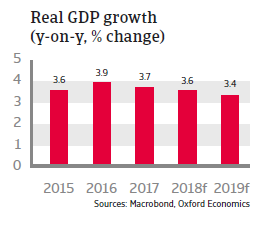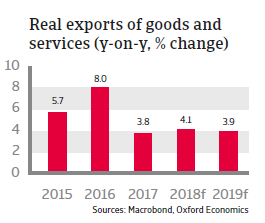Bulgaria´s economic growth is forecast to remain robust in 2018 and 2019, as household spending is spurred by wage growth and an improving labour market.


Political situation
Head of state: President Rumen Radev (since January 2017)
Head of government: Prime Minister Boyko Borisov (since May 2017)
Population: 7.0 million
Some political instability remains
After the snap elections held in March 2017 Boyko Borisov from the centre-right GERB party became Prime Minister for the third time. He heads a coalition government of GERB and the nationalist “United Patriots” party, with just a slim majority in parliament (122 of 240 seats).
The snap elections became necessary as the previous government under Borisov had resigned after Rumen Radev, a socialist–backed pro-Russian won the November 2016 presidential elections.
Political discontent remains high, especially over the slow progress in combating graft and corruption and social welfare issues. While the incumbent government pursues a pro-EU policy, the socialist party and President Radev favour closer political and economic relations with Russia.
Economic situation
Solid growth expected in 2018 and 2019

Economic growth has accelerated since 2015, driven primarily by stronger exports and growing private consumption. GDP is forecast to remain robust in 2018, as household spending is spurred by wage growth and an improving labour market (unemployment is expected to decrease to about 5.5% in 2018). At the same time, exports continue to be driven by increased eurozone demand, and investments (including EU-financed infrastructure projects) picked up again. Economic expansion is forecast to lose some momentum in 2019, but to remain strong at above 3%. Both private consumption and investment growth are expected to slow down next year.
After a surplus in 2017, the fiscal balance is expected to turn to a modest deficit in 2018 and 2019. Public debt remains sustainable (at 24% of GDP in 2019).

After a banking crisis in 2014 the sector has made big improvements, with the IMF’s 2016 banking sector assessment and a stress test made by the Central Bank showing that the sector is well-capitalised and more resilient to shocks. However, more than 10% of total loans are still non-performing, which continues to be a threat to bank profitability.
Bulgaria’s monetary policy framework is strong with a solid commitment to its currency board arrangement (the lev is pegged to the euro), which supports foreign investor confidence. However, this arrangement limits Bulgaria’s ability to combat external imbalances. The peg is maintainable due to large international reserves (more than nine months of import cover) and current account surpluses.

Political instability remains an issue for Bulgaria´s long-term economic growth prospects, while corruption and red tape still hamper the business environment. The high level of emigration (about one million Bulgarians live abroad) and a shrinking and ageing population (the United Nations expect that Bulgaria’s population will decrease from 7 million to 5.2 million by 2050) add to the woes of the labour market and reduce the potential for long-term growth.

